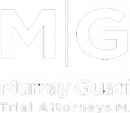Guest Columnist: Attorney David Steinfeld of Law Office of David Steinfeld, P.L.
In 1985, the Florida Supreme Court decided that buyer beware does not apply to residential real estate. From then, Florida law placed an affirmative duty on sellers to disclose to buyers all material defects that they actually know about and that are unobservable to the buyers. As a consequence, buyers can rely on a seller’s representations about the house. But whether a particular representation is material under Florida law depends upon the circumstances of the transaction.
From then, Florida law placed an affirmative duty on sellers to disclose to buyers all material defects that they actually know about and that are unobservable to the buyers. As a consequence, buyers can rely on a seller’s representations about the house. But whether a particular representation is material under Florida law depends upon the circumstances of the transaction.
What disclosures does a seller have to make
Generally, residential real estate transactions in Florida use standard forms approved by the Florida Association of Realtors and the Florida Bar. These are called appropriately FarBar contracts. They address the required material disclosures that sellers must make. However, buyers are not limited to the disclosures in these forms and can ask for additional information they deem important to the purchase. Even though a buyer has legal right to rely on the disclosures, a prudent purchaser will use engage professionals like home inspectors to verify the information. Proactively validating disclosures before closing is one of the best ways to avoid post-sale disputes.
Do I have to disclose something I fixed
Whether a seller must disclose a material and unobservable defect that the seller believed was remedied or fixed by the seller or a third party is not clear under Florida law. The circumstances of the particular situation will control. A better approach is simply to inquire of the seller whether any significant work has been performed recently. Oftentimes real estate agents use their own forms for sellers to disclose any recent work and whether permits were required so it is best to look for that information.
What does as-is mean in a contract
Sellers cannot avoid their disclosure obligations with an as-is disclaimer. To do so would run counter to Florida law. That would also allow a seller to unilaterally obviate or limit its legal disclosure obligations. But whether a specific fact is material and whether the seller has an obligation to disclose it depends on the transaction.
How do I prove a failure to disclose
A seller is only obligated to disclose material defects of which it is actually aware. If the seller does not know, then the seller cannot and need not disclose that defect. A buyer must prove that the seller actually knew about the material defect. That is not that the seller probably or should have known, but that the seller actually knew. Without disclosures, inspections, and documentations, if the defect is truly unobservable then that may not be an easy proposition. Thus, a better approach is to trust but verify.
Title issues in residential real estate
With regard to title issues when purchasers obtain financing through a commercial lender, the institution generally requires a pre-closing title report and title insurance for their protection. This ensures that the lender’s mortgage will be in a priority position. Conditions of a loan may even require the satisfaction of all existing liens at closing to guarantee the lender’s priority. Even for cash transactions, the buyer should still know that it can obtain or ask the seller to provide a title review report as part of the buyer’s due diligence.
The title review process may often be imperceptible to the buyer. Even though the buyer may be focused on the physical condition of the property, the buyer should still receive and review the title report before closing.
Who can help me with buying residential real estate Board Certified lawyers are those who have demonstrated their experience and expertise. You can easily search for a Board Certified attorney in real estate, construction, or business litigation on the website of the Florida Bar.

David Franks
Law Office of David Steinfeld, P.L.
dave@davidsteinfeld.com
www.ThePalmBeachBusinessLawyer.com
561-316-7905


